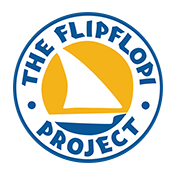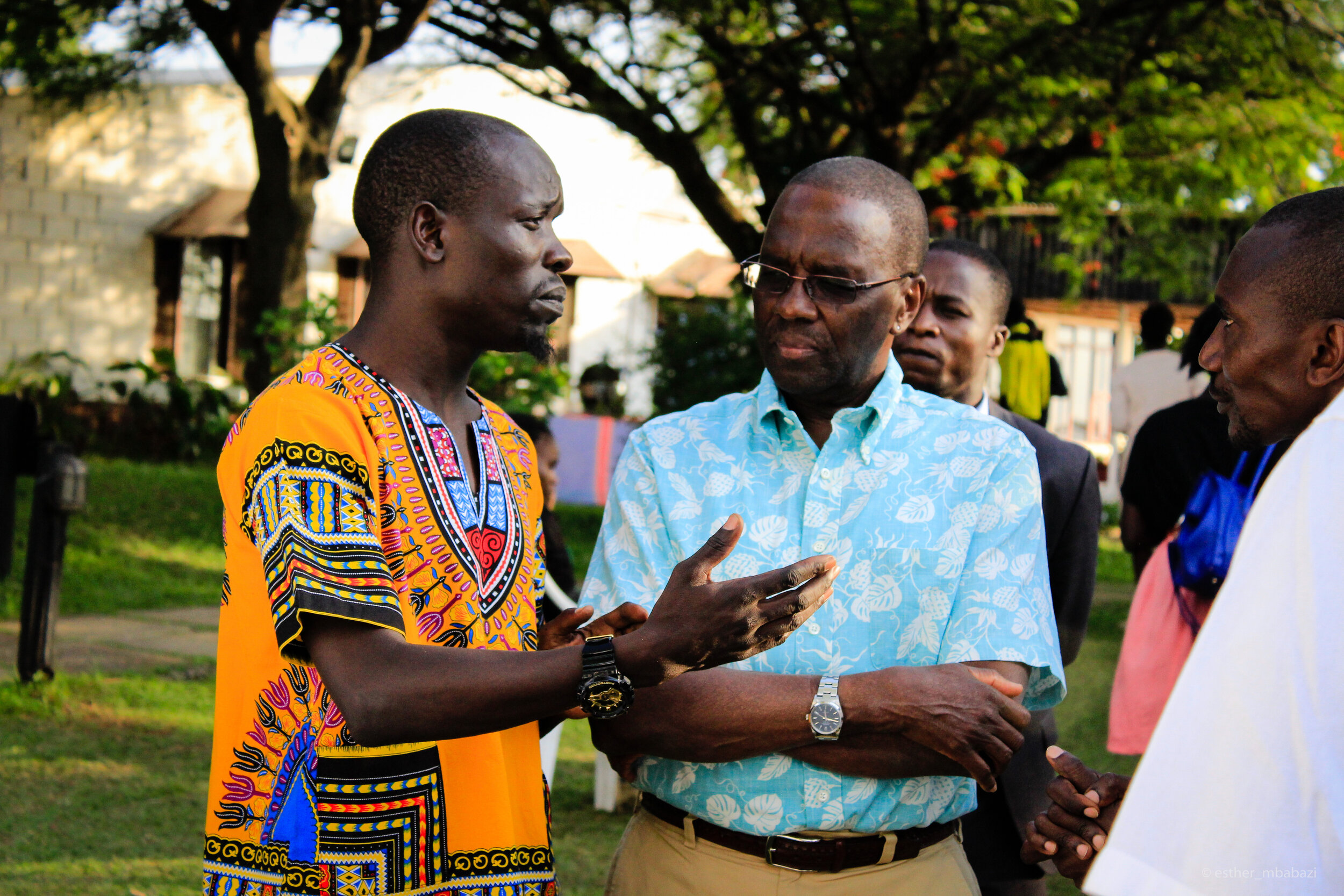Pollution Artivism On The Shores Of Lake Victoria
By Hannah Evans
To launch our Lake Victoria expedition we’re excited to announce our partnership with Naam Festival. Naam Festival will be running recycling and art workshops, providing valuable knowledge and raising awareness all Kisumu County from the 6th February to the 7th March.
We chose to work with Naam Festival due to their dedication to clean up and provide solutions for their local environment and the work they’ve done on their #JusticeforLakeVictoria campaign. As well as their global solidarity campaign for endangered lakes - My Lake My Future - that feature Lake Titicaca in Peru/Bolivia and Lake Velayani in Kerala India.
Dave Ojay - Naam Festival founder - talking with the former Chief Justice of Kenya Dr Willy Mutunga during the launch of the #JusticeforLakeVictoria Photography Exhibition in Kisumu, 2016. Photo courtesy of Esther Mbambazi.
But we realise you might not know so much about this Kisumu based organisation. So we sat down with their founder Dave Ojay to discuss where the idea of Naam Festival came from, what it hopes to achieve and what partnering with The Flipflopi Project means to them.
Where did the idea of Naam Festival come from?
Although Dave grew up in Nairobi his roots hail from the shores of Lake Victoria. It was here on holidays with his family that his fascination and love of nature grew. At the same time, a budding passion for the arts sprouted.
He went on to study journalism yet became a full-time travelling thespian. Though he quickly realised that it wasn’t enough to simply take part in the arts, he wanted to ‘professionalise it’ and show that the arts are much more than something for people to simply enjoy.
Dave pulling Water Hyacinth - a local organic pollutant - from Lake Victoria. Photo courtesy of Naam Festival.
To Dave, the arts have the potential to generate awareness for issues that are otherwise overlooked. As well as offering a valuable mouthpiece to people struggling to find their voice.
In Dave’s own words, he sees himself as a ‘die-hard cultural practitioner’.
Before launching Naam Festival Dave had the opportunity to work at multiple festivals across the continent. Including Sauti Za Busari in Zanzibar and Festival Sur le Niger in Mali.
Both of these festivals held a strong cultural identity that both celebrated and savoured the traditions and heritage of their local environments.
It was around this time that Dave returned to his family home near Kisumu. He was was shocked at the state of the lake. Instead of seeing endless water, he saw ‘water hyacinth as large as several football fields’ and people nearby driving cars into the lake to wash them.
Instinctively he knew this was wrong and that someone had to do something about it.
This is what inspired him to launch a movement that celebrates and respects the culture, heritage and environment of the whole Lake Victoria basin.
What is Naam Festival?
Naam Festival is a creative activism organisation that uses art advocacy to push for action through mindset shift and behavioural changes. Through the language of arts and culture, the festival shares their message of environmental respect.
The word naam in Swahili means yes, while in Dholuo (a language widely spoken in the region) it means lake. Thus perfectly linking the message of the lake with positive impacts together.
The dream of the organisation is to see a clean, drinkable, fishable and swimmable lake.
The festival itself is in a fluid form, taking on a different guise each time it’s run depending on the purpose of the function of that event. The aim of this fluidity is for the messaging and campaign to be a continual tool for awareness throughout the community.
This fluidity has also allowed Naam Festival to host events in Kenya, Tanzania, South America, The United States of America, India and online.
What has Naam Festival already achieved?
Initially, communities surrounding the lake felt the efforts of Dave and his team were wasted. They couldn’t see a way beyond the polluted lake they saw before them. However, the team continued working and as they slowly came up with creative solutions to problems the community got behind them.
Card made from Water Hyacinth is measured up to create bags. Photo courtesy of Naam Festival.
This illustrated Dave’s vision of generating awareness to often overlooked issues.
As the vision and the team grew Naam Festival have been at the forefront of some exciting projects:
Na’mfuko - The Oceans Plastics Innovation Challange, a project sponsored by National Geographic to eliminate plastic bags in Lake Victoria replacing them by bags made from the locally abundant water hyacinth and other organic material. Thus killing two birds with one stone as both materials are currently choking lakes and rivers across Africa.
Naam Tuvae - a sewing project sponsored by the German Embassy specifically using recycled and second-hand materials to create beautiful accessories that empower youth communities to learn valuable new skills for an alternative income.
Both of these projects fall under their philosophy of Turning Threats into Opportunities. Illustrating the point that things classified as waste are not waste until they’re wasted.
How does this fit with the Flipflopi Project?
The Flipflopi Project was born out of a desire to communicate a global pollution problem in a creative way that could be understood the world over.
An art installation created on the shores of Lake Velayani in Kerala, India. Photo courtesy of Naam Festival.
Like the Flipflopi, Naam Festival also wishes to raise awareness of a global problem while also empowering people to understand that they too can make a difference, no matter how small.
Dave spoke of his respect for the innovation needed to create the Flipflopi Dhow - the worlds first 100% recycled plastic dhow - noting how it was aligned with their own projects turning threats into opportunities.
Through this partnership, Naam Festival hopes that they are able to amplify their message to a wider audience. And empower the community to believe they are part of the larger conversation of plastic pollution.
Through arts, culture and heritage Naam Festival hope to illustrate the issues surrounding pollution in Lake Victoria and other lakes in the world and to provoke the people into action.
What’s happening around Kisumu during Naam Festival?
Between the 6th February and the 7th March, there will be countless activities happening all throughout the Kisumu County.
Including:
Cleanups on the shores of Lake Victoria
Film screenings of inspiring and influential local films
Recycling workshops for plastic, textiles and water hyacinth
Knowledge sharing sessions around circular economies, biofuels and sustainable farming
Art and craft workshops with installations using sustainable and recycled materials
If you’re interested in joining any of these workshops or finding out more information about this instalment of Naam Festival head to their Facebook page for a full rundown of activities.
Be sure to follow both Flipflopi - @theflipflopi - and Naam Festival - @itsnaamfestival - on Instagram for regular updates throughout the month.
The Flipflopi would like to thank their sponsors and partners for allowing this wonderful festival to go ahead.





